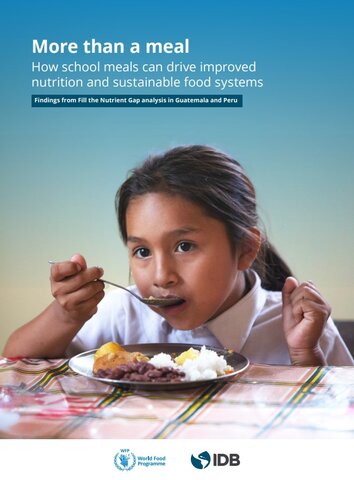
How school feeding can drive improved nutrition and sustainable food systems.
This new joint report by WFP and IDB provides an in-depth analysis of school meal programmes in Guatemala and Peru, highlighting their potential to improve nutrition, reduce inequalities, and strengthen environmental sustainability.
Using the Fill the Nutrient Gap (FNG) methodology, the analysis shows that school meals:
- Significantly reduce the cost of a nutritious diet for families.
- Improve nutritional quality, especially when meals are served at school and complemented with fortification.
- Contribute to more resilient local food systems in the face of climate change.
- Have a positive impact on child development, academic performance, and public health.
The report also emphasizes the importance of community participation, integration of multisectoral policies, and the urgent need to address challenges such as the high presence of ultra-processed foods and the triple burden of malnutrition.
